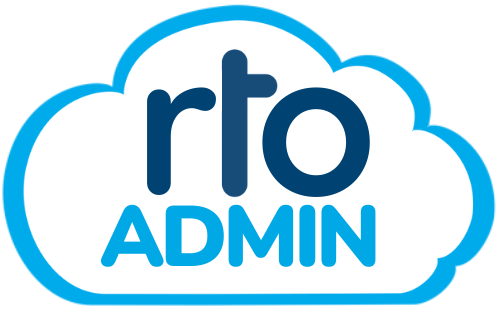What are the costs and considerations involved in setting up a Registered Training Organisation (RTO)? Establishing an RTO is a multifaceted process that demands a significant investment, both in terms of time and money. The decision to either go solo or hire a consultant must be made with care, keeping in mind the complexity and laborious nature of the task.
Introduction to RTO Setup
Setting up a Registered Training Organisation (RTO) involves navigating through a maze of requirements and regulations. The process is not only complex and time-consuming but can also be costly. One crucial decision you need to make upfront is whether to embark on this journey alone or to enlist the services of a professional consultant. We will guide you through the key components to consider, from registration to financial planning, each carrying its own set of costs and challenges.
Registration Process
The registration process for an RTO is rigorous and involves several critical steps, each with its own timeline.
Preparation of Documentation
Preparation of documentation can take anywhere from 2 to 6 months. This includes amassing all necessary paperwork, ensuring it aligns with regulatory requirements, and preparing a comprehensive business plan.
Lodgement via ASQAnet
Once your documentation is ready, you need to lodge it through the ASQAnet portal, along with a payment of a $500 fee. This step initiates the formal registration process.
ASQA Initial Check and Assessment Fee
The Australian Skills Quality Authority (ASQA) conducts an initial check, followed by an $8,000 assessment fee. ASQA’s assessment encompasses two primary stages: the Desktop Audit and the Validation.
Key Preparatory Steps
A well-prepared foundation is key to a successful RTO setup. Here are the essential preparatory steps you need to undertake:
Documentation
Start with a robust business strategy. This should incorporate policies, procedures, various forms, training strategies, and a self-assessment tool to gauge compliance with regulatory standards.
Business Plan
Your business plan should outline your operations, target market, services offered, financial projections, and organizational structure. A well-defined business plan acts as your roadmap and can significantly aid in the registration process.
Financial Viability
Financial viability is crucial in demonstrating the sustainability of your RTO. You will need to prepare a Financial Viability Risk Assessment (FVRA) with input from your accountant to prove your financial health.
Cost Considerations
Establishing an RTO comes with significant costs. Below are some of the key expense areas you need to be aware of:
| Cost Item | Cost Range |
|---|---|
| Policies & Procedures | $5,000 to $15,000 |
| Student Management System | $1,000 to $3,000 |
| Training Materials | $10,000 to $15,000 |
| Training Equipment | $5,000 to $15,000 |
| Accountant Fees | $2,500 to $5,000 |
| ASQA Lodgement and Assessment Fees | $8,500 |
| Legal, Registration, Website, and Branding | $9,000 to $23,000 |
| Total Estimated Cost | $45,000 to $85,000 |
Policies & Procedures
The cost for establishing policies and procedures ranges from $5,000 to $15,000. This expenditure is essential to ensure you meet the Standards for RTOs 2015 and tailor them to fit your organization’s unique needs.
Student Management System
An efficient Student Management System is crucial for seamless operations. Expect to invest between $1,000 and $3,000 to have this up and running.
Training Materials
Training materials are another significant expense, ranging from $10,000 to $15,000. Quality training materials are essential to offer valuable learning experiences to your students.
Training Equipment
Depending on the courses you offer, training equipment will cost between $5,000 and $15,000. This investment is vital for delivering hands-on training experiences.
Accountant Fees
Professional accounting services will help you maintain financial health and compliance, costing between $2,500 and $5,000.
ASQA Lodgement and Assessment Fees
ASQA lodgement and assessment fees total $8,500. This mandatory cost is incurred during the registration process.
Legal, Registration, Website, and Branding Costs
The costs for legal advice, registration, website creation, and branding can range from $9,000 to $23,000. These elements are crucial to both compliance and marketing efforts.
FVRA Considerations
The Financial Viability Risk Assessment (FVRA) is a critical component of your RTO application. Ensuring you have robust cash flow and financial management systems in place is essential.
Cash Flow and Financial Management
It is crucial to have a healthy cash flow and robust financial management systems to support your RTO’s operations and growth. Align your FVRA with your overall business strategy to avoid any contradictions that could undermine your application.
Website and Branding
Your website and branding are indispensable for both compliance and marketing purposes. A well-designed website can cost between $3,000 and $4,000, while effective branding and social media presence can require an additional investment of $4,000 to $8,000.
Compliance
A professional, compliant website can help you meet regulatory requirements and serve as a reliable point of contact for potential students and stakeholders.
Marketing
Strong branding and an active social media presence are crucial for attracting students and establishing your RTO’s reputation in the market.
Policies and Procedures
The policies and procedures for your RTO must address the Standards for RTOs 2015 and be tailored to your organization.
Purchasing Documentation
While purchasing off-the-shelf documentation is an option, ensure it is comprehensive and contextualized to your specific needs. Investing in well-structured policies and procedures can save you from compliance issues down the road.
Student Management System
Your Student Management System (SMS) must be ready-to-deliver training at the time of submission. Choose a system that balances immediate needs with long-term growth.
Initial Setup Costs
Initially, you can expect to invest about $200 per month in a reliable SMS. This system should streamline your operations, from enrollment to course completion, ensuring a smooth experience for both your staff and students.
Training and Assessment Strategies
A solid training and assessment strategy is critical for the success of your RTO application. This aspect of your application will attract significant scrutiny from ASQA.
Course Planning
Developing comprehensive and detailed plans for your courses, trainers, and facilities is essential. This planning should cover all aspects of course delivery, including instructional design, assessment methods, and learning resources.
Trainer Qualifications
Ensuring that your trainers have the necessary qualifications and experience is critical. This component needs careful planning to ensure compliance and deliver quality training.
Facility Requirements
Your training facilities must meet the standards set by ASQA, including the necessary equipment and learning resources. Investing in quality facilities can significantly improve the learning experience for your students.
Conclusion
Setting up a Registered Training Organisation (RTO) is a detailed and costly endeavor that requires meticulous planning and a significant financial commitment. From registration to developing policies, procedures, and systems, each step is crucial for a successful launch. The decision to go solo or hire a consultant should be based on a careful assessment of your capabilities and resources. By understanding the various cost considerations and preparatory steps involved, you can better navigate the complexities of establishing an RTO and set the stage for long-term success.




